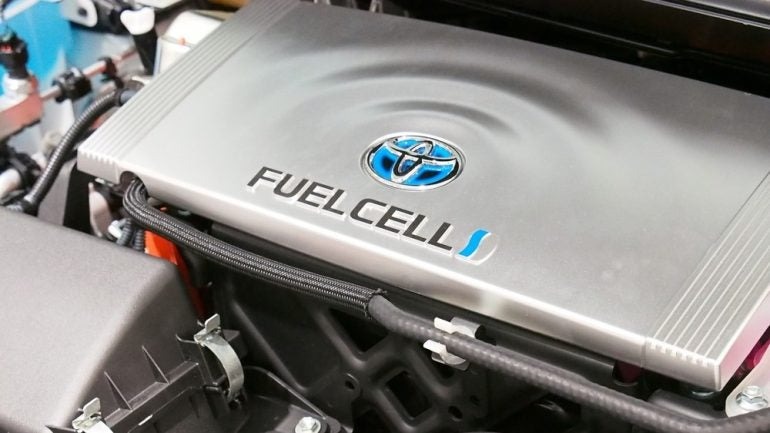Briefing
Innovation in green hydrogen driving surge in investment
Green hydrogen is receiving attention and investment, with major players in the automotive industry showing particular interest, writes Eve Thomas.

Toyota introduced the first car available car powered by a hydrogen fuel cell in 2014. Credit: Takashi Images/Shutterstock
Innovations in green hydrogen are driving interest in the technology and a “surge” in venture capital (VC) investments, according to a new GlobalData briefing.
The briefing notes that India is seeing particularly high levels of activity, with projects valued at $2bn (Rs167.18bn) having received clearance and plans to dedicate up to $12bn in investment in the coming years to green hydrogen production.
GlobalData analyst Sourabh Nyalkalkar is quoted as saying: “The year 2024 is shaping up to be a pivotal one for the clean energy sector, with a significant focus on green hydrogen.
“This concerted effort by major economies worldwide, coupled with a surge in VC investments in green hydrogen start-ups, sends a clear signal to the energy sector. Stakeholders are encouraged to closely monitor this space for potential growth opportunities.”
There is particular potential for growth in the automotive industry, which has already proved eager to innovate around hydrogen fuel cells. In 2022, BMW chairman Oliver Zipse said: “The next trend will be hydrogen. When it is more scalable, hydrogen will be the hippest thing to drive.”
Toyota has already invested heavily in the sector, introducing the first hydrogen-powered production car, the Mirai, in 2014. Pushing back against claims the company is falling behind in the electric vehicle (EV) market, Toyota’s chairman Akio Toyoda said last month that he believed hybrid, hydrogen-fuel cell and hydrogen combustion engines would make up 70% of new car sales globally.
His confidence is reflected by Hyundai, which has demonstrated interest in the market for some time, launching its fuel cell over a decade ago in 2013. Since then, it has released its Xcient Hyundai Truck, which takes eight minutes to fuel and can travel 250 miles on a full tank. More recently, in August 2021, it announced a collaboration with Next Hydrogen Corporation to develop an alkaline water electrolysis system.
Volvo is also interested. The company launched CellCentric in 2021, a joint venture with Daimler Truck, to develop hydrogen-powered fuel cell systems with the ambition to become a leading manufacturer.
Nyalkalkar comments: “For the energy sector, the innovation landscape in green hydrogen holds immense promise for strategic pivots and growth opportunities. Whether tapping into cutting-edge technologies developed by start-ups or partnering with advanced solution providers, the sector has the potential to rapidly scale markets, especially as global economies open up large-scale production projects.”
Considering the technology associated with green hydrogen investment, he identifies photocatalyst electrodes (used in electrolysers that split water for hydrogen) as an area of innovation to watch. By using solar energy to split water molecules, the catalysts produce green hydrogen, offering industries a zero-carbon energy source.
Toshiba and Panasonic are named as companies dominating innovation in this sector. However, China is leading in the number of patents processed by SIPO (the State Intellectual Property Office) in the area, with 21%.
“The start-up ecosystem in this field is also gaining competitiveness, with notable players like Ohmium securing a $250m investment led by TPG Capital and Verdagy receiving $73m led by Temasek in late 2023,” adds Nyalkalkar.